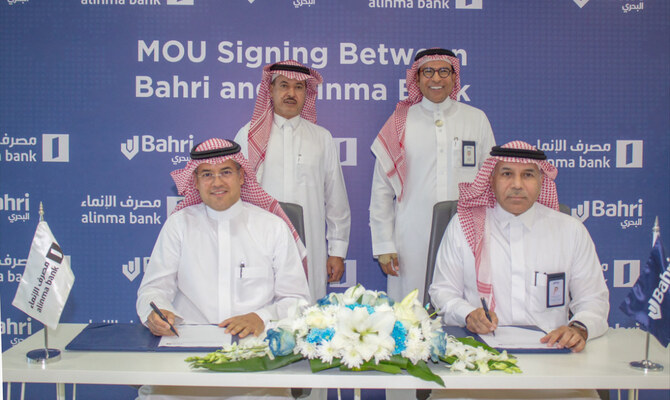The Middle East’s largest economy, Saudi Arabia, has made significant efforts to diversify its economy and reduce its dependency on oil. One of the key pillars of this diversification strategy is the development of a robust debt capital market, which could help these countries provide alternative financing options for both the public and private sectors.
Developed DCMs could attract foreign investments by offering a structured and transparent environment. Access to DCMs enables funding for large-scale infrastructure projects, crucial for economic development and modernization, which are key tenets of the Kingdom’s Vision 2030. Diversifying funding sources through DCMs could also help manage financial risks by reducing reliance on bank loans and volatile oil revenues, contributing to overall financial stability through efficient capital allocation and risk distribution.
Sukuk at the cornerstone of Saudi DCM growth
Saudi Arabia's DCM surged to $407.7 billion outstanding at the end of 1H24, an 18 percent year-on-year increase, equally split between US dollars and riyal issues. The Kingdom issued approximately $67.2 billion in 1H24 alone across all sectors, a 59 percent rise year-on-year, matching the total issuance of 2023. This positions Saudi Arabia as a dominant player in the GCC region, reflecting growing investor confidence.
The first half of 2024 saw a diversified issuance mix of conventional bonds and sukuk. Saudi Arabia remains a global leader in sukuk issuance due to its expanding Islamic finance sector. Sukuk comprised nearly 60 percent of total debt issued in 1H24, around $41 billion, showcasing a preference for Shariah-compliant instruments. This broadens the investor base, including those adhering to Islamic finance principles, such as many Saudi banks and corporates.
Saudi Arabia leads emerging markets issuances
Saudi Arabia has emerged as the largest dollar debt issuer in emerging markets (excluding China), with $38.5 billion in dollar-denominated debt issued in 1H24 alone. This solidifies the Kingdom as a key player in the global debt market, attracting international investors and boosting its financial standing.
The DCM picked up in 3Q24, with issuance from the government, Public Investment Fund, Saudi Aramco, Banque Saudi Fransi, Riyad Bank, Emkan Finance, and others. Substantial dollar debt issuance is anticipated to continue into 2025 as oil revenues moderate. Fitch rates about 80 percent of dollar sukuk from Saudi Arabia, with nearly all being investment-grade. Vision 2030 projects, deficit funding, diversification, and regulatory reforms suggest the Saudi sukuk and bond markets will likely exceed $500 billion in the next few years.
The foreign investors’ share of local government issuances grew to 7.2 percent by the end of 1H24, up from just 0.2 percent in 2022. This increase follows the inclusion of Saudi issuances in global bond indices, including the FTSE Emerging Markets Government Bond Index, and linkages with international central securities depositories, Euroclear and Clearstream.
Supportive regulatory environment
The Saudi Central Bank has played a crucial role in implementing regulatory changes to enhance transparency and governance, positively impacting the market, increasing investor confidence, and encouraging more issuances. Enhanced transparency, such as the use of credit ratings by debt issuers, can also help make it easier for investors to assess the credit risks associated with different debt instruments on a national and global basis, further supporting the development of a more efficient debt capital market. As a response to this rapidly growing area, Fitch also established a national rating scale for Saudi Arabia in 2020 to reflect differences in the relative creditworthiness of local issuers, helping investors differentiate risk.
ESG considerations
In line with global trends, interest in ESG-debt instruments is growing, driven by government mandates and investor demand. Nearly 10 percent of US-dollar DCM outstanding is now in ESG form in Saudi Arabia, with high-profile ESG sukuk issuances in 1H24 amounting to approximately $2.8 billion. These align with Vision 2030 objectives emphasizing sustainability and social development.
Growing demand for Islamic banking
Saudi Arabia's Islamic finance ecosystem is flourishing, with about 86 percent of banking industry financing being Shariah-compliant. Islamic banks’ liquidity management is supported by the increasing availability of government sukuk. Banks are diversifying their funding bases through wholesale funding, including sukuk issuance, which is becoming a larger part of the funding mix. Local banks are also anchor investors in government riyal issuances, holding over 75 percent share.
The asset management industry continues to see positive inflows, with assets under management increasing by 13.5 percent year-on-year to surpass $250 billion at the end of 1H24. Approximately 95 percent of mutual funds in Saudi Arabia are Shariah-compliant as of 9M24, with strong demand for Shariah-compliant products among both retail and institutional investors. About 16 percent of public funds’ AuM are invested in debt instruments.
Challenges and opportunities
Despite being one of the most developed markets in the Organisation of Islamic Cooperation countries, Saudi Arabia's DCM has room to evolve. Compared to most G20 countries, the DCM is relatively shallow, with limited issuer diversity and a concentrated investor base.
The DCM is also exposed to oil price and interest rate volatility, concerns over the scale and use of issuance, and geopolitical risks. However, the government's commitment to economic diversification positions Saudi Arabia well to further develop its DCM. Growing international investor interest and the Kingdom's proactive regulatory stance create a conducive environment for sustained growth.
Conclusion
Saudi Arabia's DCM is experiencing robust growth, driven by strong regulatory frameworks and diversified debt instruments. The increasing prominence of sukuk, enhanced transparency, and the integration of ESG factors position the market for long-term growth. While challenges remain, opportunities for further development and growing international investor interest are substantial.
-
The writer Bashar Al Natoor is the Global Head of Islamic Finance at Fitch Ratings
















